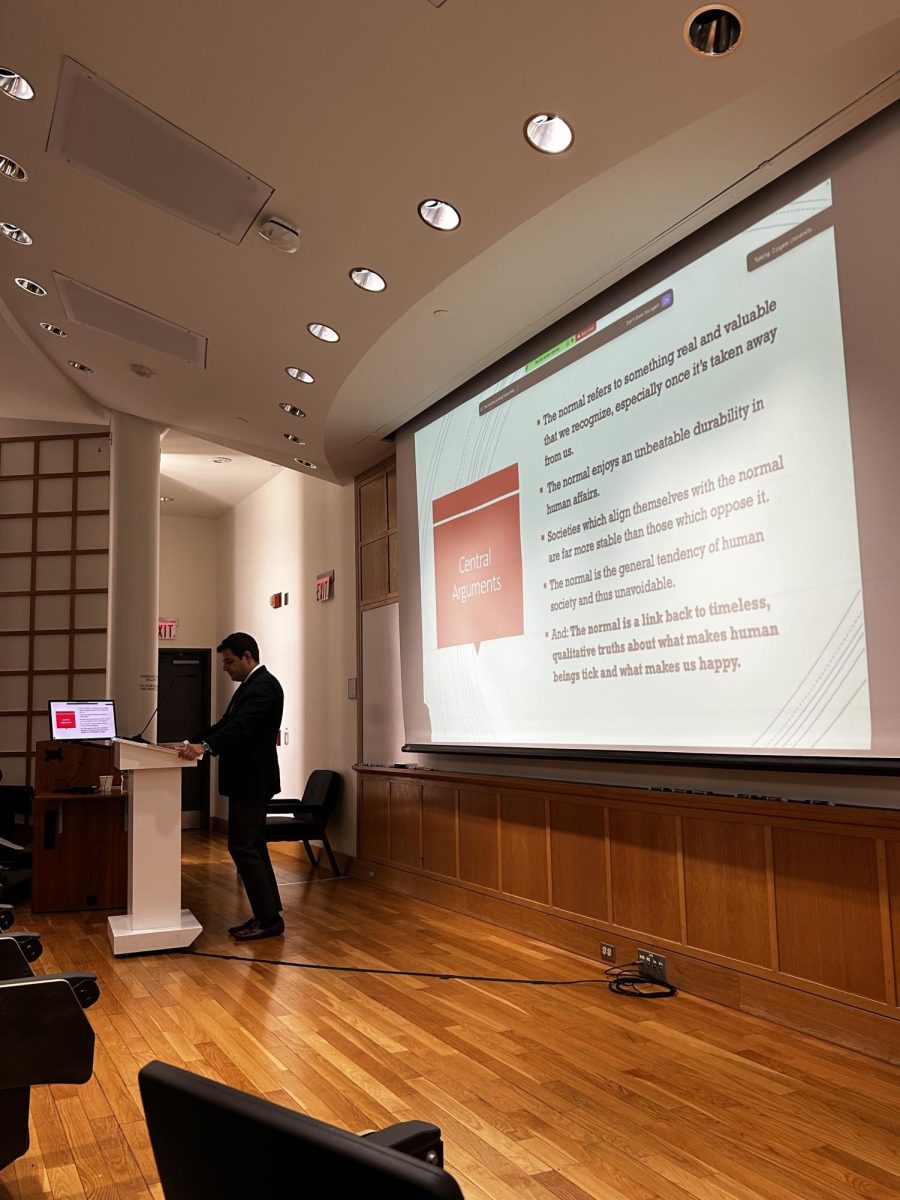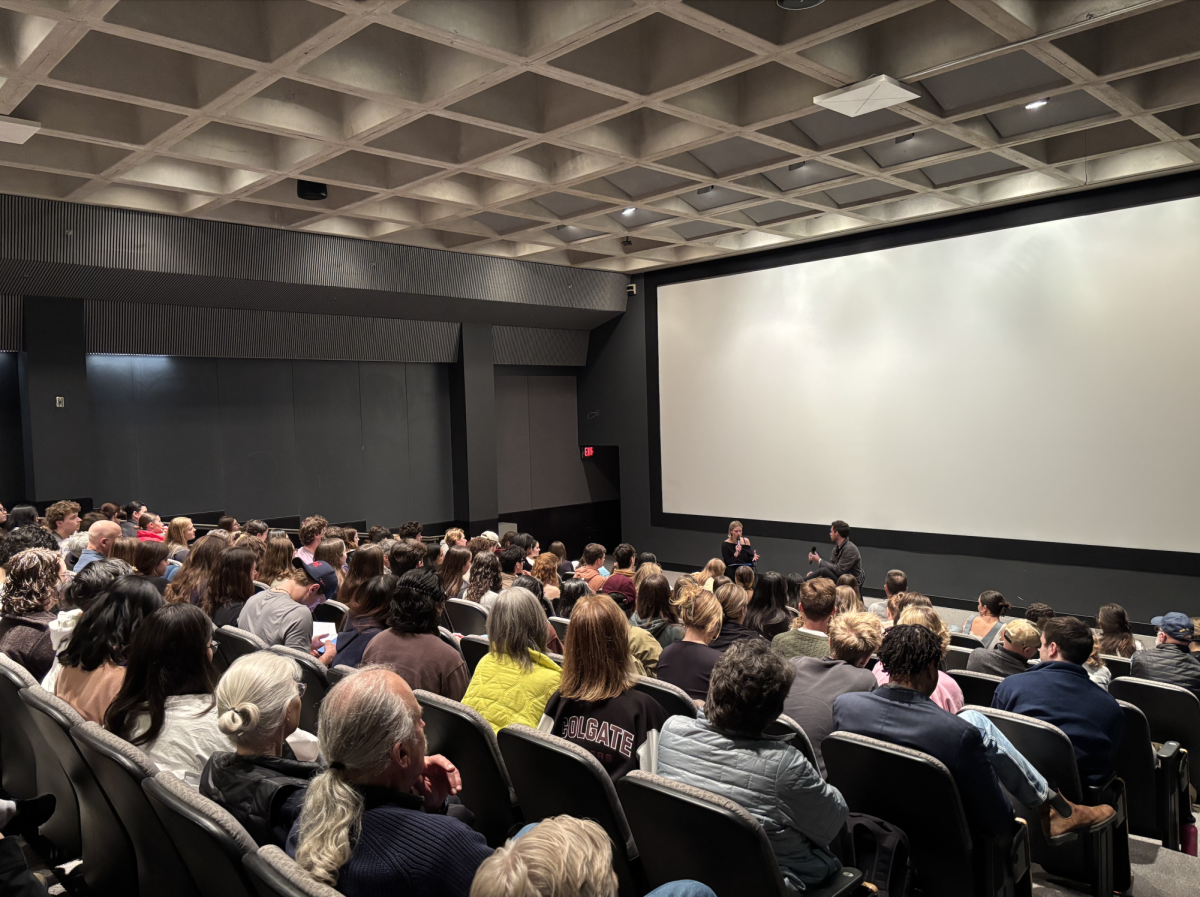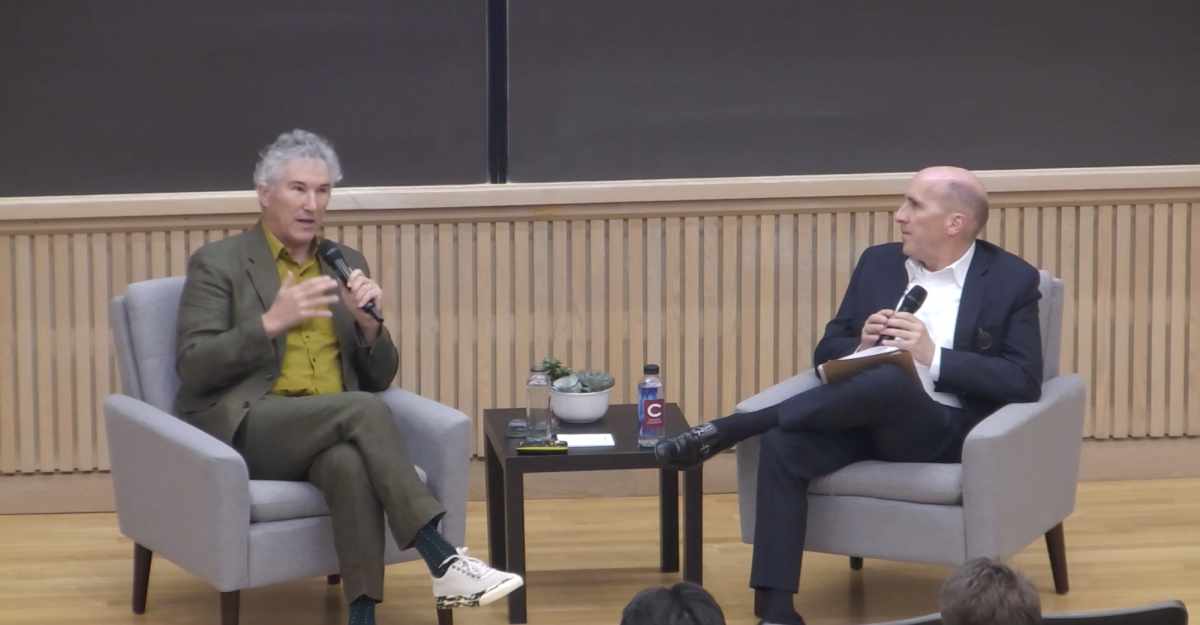On Friday, April 5, Colgate University’s chemistry department held a colloquium titled “New Chemical Tools for Neuroscience and Medicine,” led by Jacob Goldberg, an assistant professor of chemistry. Goldberg’s research is focused on new chemical tools for understanding and treating disease, and he refers to himself as a ‘chemical biologist.’ Much of his work focuses on the brain and how specific aspects of chemical modifications can affect brain function, behavior and illness.
At the start of his talk, Goldberg stated the four chemical tools he has observed that are used to study biological systems, including protein aggregation, drug interactions, zinc in the brain and fast protein modification. Goldberg then explained in detail his work at Colgate in both the fast protein modification and zinc neurobiology fields, noting that Colgate has filed a patent for fast protein modification, something Goldberg referred to as rapid, simple and practical.
“Antibodies will target a specific thing in your body — hopefully these cancer cells, not other cells,” Goldberg said. “We want to bring a cancer drug directly to cancer cells and not affect other cells. That’s the goal.”
First-year Katherine Cline explained why she was interested in attending this presentation.
“I attended the event as an intended molecular biology major on the pre-med track to enhance my learning experience, gain insights into medical issues and stay up-to-date on the latest advancements and trends regarding research,” Cline said.
While many in the audience were in a similar position as Cline, either interested in or studying natural science, some were simply interested in Colgate’s research into the development of new tools to treat certain illnesses.
Sophomore Grace Braham, who studies psychology, also commented on why she felt this research was important to share with students and faculty.
“From what I understand, Colgate is doing a lot of research into some really interesting and relevant tools that could move us closer to understanding how to treat these complex illnesses,” Braham said. “That’s something really valuable about a school like Colgate that has the resources to make progress in these fields.”
Goldberg’s research, which began in 2017, aims to decrease reaction time in reaction kinetics and essentially help speed up the time it takes for a drug to react in the body.
“We entered the field asking, ‘How can we do this?’,” Goldberg said. “The trick [is] using old chemistry and repurposing it.”
Making the molecules that Goldberg’s team is studying at Colgate has become relatively easy and efficient in the past few years. The experiments have been replicated in a very general way, which Goldberg noted as positive. The success of these experiments and the expansion of research are vital to improving medicine and treatments for many serious and complicated illnesses.
Goldberg continued his lecture with insight into his work on zinc neurobiology and the lab interested in sensory perception. These studies had an overarching question of how different metal ions work in the processes of perception. For those in the audience who did not necessarily know much about this, Goldberg explained that zinc is a structural element that is involved in fertilization, insulin secretion, lactation, prostate health, hippocampal long-term potentiation and sensory perception. As far as Goldberg and his team were concerned, the last two were the most important. In this lab, they looked at the levels of zinc in the brains of mice.
“We take anesthetized mice and we just start playing sounds to them,” Goldberg said. “We need to have probes that are going to be able to measure how much zinc was in the tissue to begin with.”
The interest in doing this is to observe sensory perception, learning and memory formation as the parts of the brain that control these have high amounts of zinc. In doing so, it is possible to treat and manage conditions and illnesses related to these parts of the brain. Goldberg’s talk, part of a NASC series, showed students and faculty the way that Colgate is participating in something bigger than the university itself: progress in human health and medicine.











